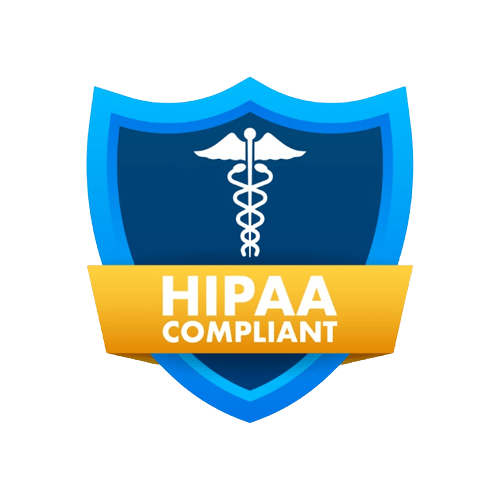An Advanced Nurse Practitioner (ANP) is a highly experienced nursing professional who provides comprehensive care to individuals, families, and communities. Often serving as primary care providers, they are qualified to provide advanced care.
ANPs are a valuable asset to the healthcare industry, providing knowledgeable and experienced care to those in need. With their expertise, they are able to provide quality care to those who need it most.
What is a Advanced Nurse Practitioner?
An Advanced Nurse Practitioner (ANP) is a registered nurse with specialized education and training in advanced nursing practice. ANPs provide comprehensive care to patients, including diagnosing and managing illnesses, ordering and interpreting diagnostic tests, prescribing medications, and providing patient education and counseling.
ANPs work collaboratively with other healthcare professionals to ensure quality care for their patients.
Qualifications of an Advanced Nurse Practitioner
An Advanced Nurse Practitioner (ANP) is a highly qualified healthcare professional who provides quality care to patients. ANPs are educated and trained to diagnose and treat a variety of medical conditions. In addition to providing primary care, ANPs are qualified to prescribe medications and order tests.
Education and Training
To become an ANP, one must have a master’s degree in nursing and complete specialized training. This training includes advanced courses in pharmacology, physical assessment, pathophysiology, and health promotion. ANPs must also have clinical experience in order to be certified.
Certification
ANPs must be certified by a national board in order to practice. This certification requires the completion of a comprehensive exam that tests the ANP’s knowledge and skills. After certification, ANPs must maintain their credentials by completing continuing education courses.
Clinical Experience
In addition to formal education and training, ANPs must have clinical experience in order to provide quality care. This experience can be gained through a variety of settings, such as hospitals, clinics, and nursing homes. ANPs must be knowledgeable in diagnosing and treating a wide range of medical conditions, as well as prescribing medications and ordering tests.
Advanced Nurse Practitioners are a valuable asset to the healthcare system, as they provide quality care to patients. ANPs are educated and trained in a variety of medical topics, and have the necessary experience to provide primary care. They are certified by a national board and must maintain their credentials through continuing education courses. ANPs are an important part of the healthcare system, and are essential to providing quality care to patients.
Responsibilities of an Advanced Nurse Practitioner
Advanced Nurse Practitioners (ANPs) are highly skilled professional nurses who are responsible for providing quality care to their patients. ANPs are responsible for assessing and diagnosing patients, treating them, ordering tests, and prescribing medications. They must also collaborate with other health professionals to ensure the best care for their patients.
Assessing and Diagnosing
ANPs are responsible for assessing and diagnosing patients. They must use their knowledge and experience to evaluate a patient’s condition and determine the best course of action. ANPs must be able to take a patient’s medical history and physical examination to determine the most effective treatment plan.
Treating Patients
ANPs are also responsible for treating their patients. ANPs must be knowledgeable about the latest treatments and medications and be able to provide quality care to their patients. ANPs must be able to provide patient education and counseling to ensure that their patients receive the best care possible.
Ordering Tests and Prescribing Medications
ANPs are also responsible for ordering tests and prescribing medications for their patients. ANPs must be familiar with the latest diagnostic tests and medications and be able to use them to provide the best care for their patients. ANPs must also be able to explain the risks and benefits of any medications they prescribe to their patients.
Collaborating with Other Health Professionals
ANPs must also collaborate with other health professionals to ensure the best care for their patients. ANPs must be able to work with physicians, pharmacists, and other healthcare professionals to ensure that their patients receive quality care. ANPs must also be able to communicate effectively with their patients and provide them with the necessary information to make informed decisions about their health.
Areas of Specialization
Family Practice
Advanced Nurse Practitioners (ANPs) specialize in family practice, providing primary care for the entire family. ANPs are trained to diagnose and treat acute and chronic illnesses, perform physical exams and order and interpret diagnostic tests. In addition, they can prescribe medications and provide preventive healthcare services, such as immunizations. ANPs also provide counseling and education to patients and their families.
Acute Care
ANPs are also specialized in acute care, which is the diagnosis and treatment of illnesses and injuries that require immediate medical attention. ANPs are trained to assess and manage a variety of conditions, including infections, fractures, trauma, and other medical emergencies. They can also provide post-acute care, such as wound care, medication management, and follow-up care.
Geriatrics
Geriatrics is another area of specialization for ANPs. They are trained to diagnose and treat chronic illnesses and disabilities in elderly patients. ANPs can provide comprehensive care, including physical exams, medication management, and disease prevention. They can also provide counseling and support for families of elderly patients.
Pediatrics
ANPs are also trained in pediatrics, which is the diagnosis and treatment of illnesses and injuries in children. ANPs are trained to assess and manage a variety of conditions, such as infections, fractures, and other medical emergencies. They can also provide preventive care, such as immunizations and nutrition counseling.
Conclusion
• ANPs are highly experienced registered nurses with specialized education and training in advanced nursing practice.
• ANPs provide comprehensive care to patients, including diagnosing and managing illnesses, ordering and interpreting diagnostic tests, prescribing medications, and providing patient education and counseling.
• ANPs work collaboratively with other healthcare professionals to ensure quality care for their patients.
Advanced Nurse Practitioners are an invaluable asset to the healthcare industry. With their specialized training and experience, they are able to provide comprehensive care to individuals, families, and communities. Their expertise allows them to provide quality care to those who need it most. ANPs are an important part of the healthcare system, and their expertise is invaluable in helping to ensure quality care for all. Advanced Nurse Practitioners are an important part of the healthcare system, and their expertise is invaluable in helping to ensure quality care for all. Nursing Practice is essential to providing the highest quality of care to patients.





